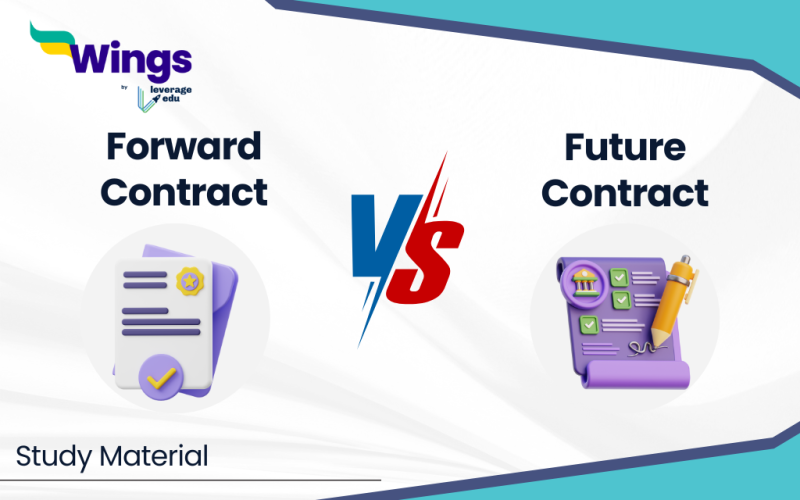Traders and investors who deal with derivatives must possess knowledge about the distinction between forward and future contracts, as these financial instruments are crucial for risk management and hedging strategies. By comprehending the difference between the two types of contracts, market participants can make informed decisions and increase their prospects of success in a challenging trading environment.
Table of Contents
What is a Forward Contract?
A forward contract is a tailored agreement between two parties to buy or sell an asset at a predetermined price at a later date. This type of derivative contract allows parties to lock in an asset price, regardless of the market conditions when the agreement is executed. Businesses often use forward contracts as a means of hedging against fluctuations in commodity prices, currencies, interest rates, and other financial instruments. However, investors also use them for speculative purposes. It’s worth noting that since there are fewer regulations and standardisations in place, the risks associated with these contracts are higher..
Also Read: What is the Difference Between Inner and Outer Planets?
Important aspects of forward contracts consist of:
- The kind and quantity of the underlying asset, the price, and the maturity date of forward contracts are all customised to meet the unique demands of the parties.
- Regardless of the underlying asset’s present market value, both parties are legally required to fulfil the conditions of the contract at the prearranged future date.
Example of a Forward Contract
Imagine an investor who agrees to buy 500 shares at ₹200 each in six months by signing a forward contract. They save ₹25,000 if the market price increases to ₹250, and they just have to pay ₹100,000 as opposed to ₹125,000. On the other hand, if by any chance, the price drops, they are at a loss as they need to pay more than the going rate.
What is a Future Contract?
A common agreement between two parties to purchase or sell a certain item at a defined price on a future date is known as a futures contract. Traders and investors frequently utilise futures contracts for risk management, hedging, and speculating. These are offered for a large variety of underlying assets, including currencies, stock indexes, and interest rates, as well as commodities like wheat, gold, and oil.
Some essential components of futures contracts are:
- The quantity and quality of the underlying asset, the price increments (tick size), and the expiration date are among the basic terms included in futures contracts.
- Futures contracts offer transparency and liquidity since they are exchanged on regulated trades.
Standard terms and conditions for a futures contract consist of:
- The volume of trade
- Delivery date
- Credit procedure
- Other technical specifications
Example of a Futures Contract
As an example, let us take the case of an investor who believes that the shares of Company XYZ, which are currently trading at ₹100, will rise. They purchase a 100-share futures contract for ₹100 (₹10,000 total). The investor makes a profit of ₹2,000 if the stock rises to ₹120, making the contract worth ₹12,000 at this point. But they stand to lose ₹2,000 if the stock drops below ₹80.
Difference between Future and Forward Contract
As mentioned above, these two terms have some different meanings, and it is important to understand them for people who trade regularly. To understand it better, below are some of the basic differences between future and forward contracts:
| Feature | Forward Contract | Future Contract |
| Nature of Agreement | Customised contracts between two parties | Standardised contracts |
| Standardisation | Non-standardised, tailored to parties’ needs | Highly standardised |
| Counterparty Risk | Higher, as it’s a private agreement | Due to clearing house involvement, risk is low |
| Settlement Process | At contract maturity | Daily settlement |
| Trading Venue | Over-the-counter (OTC) | Organised exchanges |
| Liquidity | Generally lower due to customisation | Higher due to standardisation |
| Regulation | Less regulated | Heavily regulated |
Also Read: What is the Difference Between Permanent Residency and Citizenship?
Similarities between Future and Forward Contract
Along with the differences, they both have something in common as well. Let’s explore and check out the common elements between the two:
- These are both types of financial derivatives.
- Both contracts help reduce risk and losses from market changes by committing parties to buy and sell derivatives at a later date.
- Predictive approaches are employed in both contracts to guarantee price lock-in.
- Both demand that a transaction be completed by a particular date for both buyers and sellers.
Related Posts
FAQs
There are several hazards associated with trading futures contracts, including counterparty risk (the other party not meeting obligations), liquidity risk (problems purchasing or selling contracts), leverage risk (price fluctuations), and market risk.
Contracts for futures and forwards are both used for hedging. Nonetheless, because of its standardisation, liquidity, and simplicity in offsetting positions in the market, futures are used more frequently.
Standardized contracts are exchanged on stock exchanges as futures. Futures contracts are not as flexible as forward contracts.
This was all about the “Difference between Future and Forward Contract”. For more such informative blogs, check out our Study Material Section, you can learn more about us by visiting our Indian exams page.
 One app for all your study abroad needs
One app for all your study abroad needs













